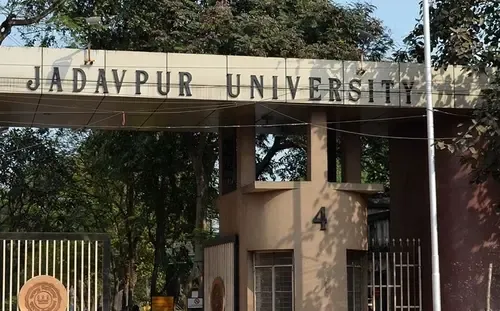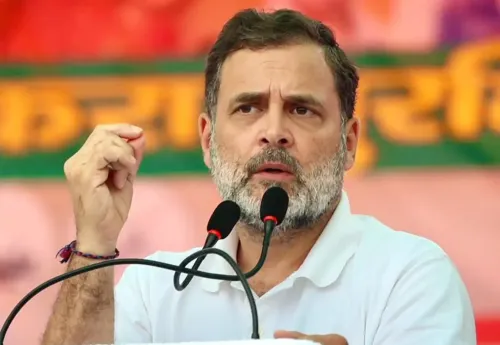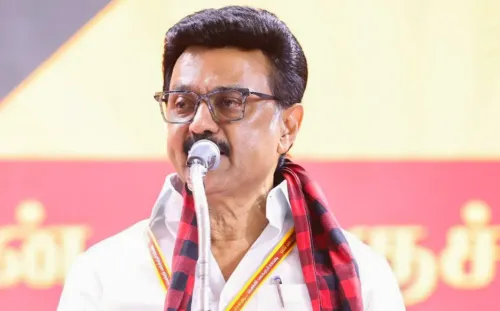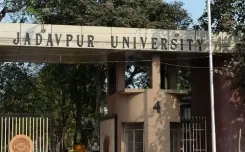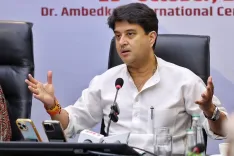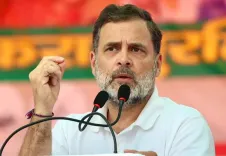Why Did Oppn Slam Nitesh Rane for His ‘Marathi in Madrasa’ Remark?
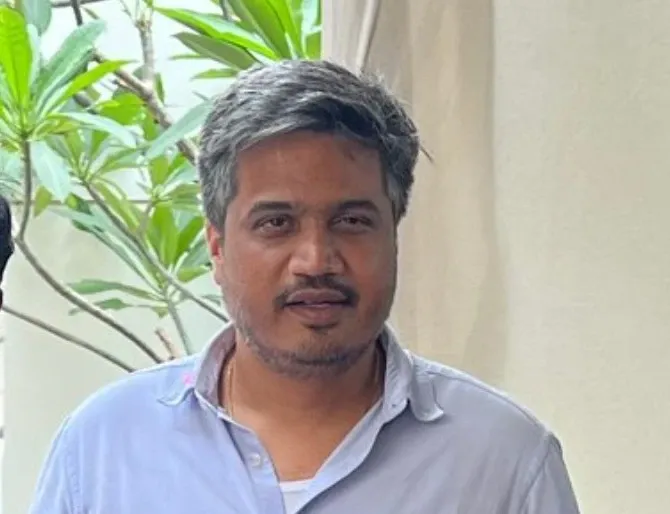
Synopsis
Key Takeaways
- Nitesh Rane's remarks have ignited controversy.
- Opposition leaders condemn his statements as divisive.
- Calls for communal harmony are emerging.
- Political motivations behind statements are under scrutiny.
- Importance of responsible discourse in election season.
Mumbai, July 16 (NationPress) Opposition leaders on Wednesday lashed out at Maharashtra Minister Nitesh Rane for his inflammatory statements advocating that Marathi should take the place of Urdu in madrasas, and suggesting that the Islamic call to prayer (Azaan) should be recited in Marathi. They accused him of attempting to incite communal strife and misrepresent minorities for political gain as elections approach.
Rane’s remarks were made in light of news that the Congress party is establishing Marathi schools in parts of Mumbai. He stated, “Why does Congress need to operate Marathi schools? The Opposition ought to urge Muslims to deliver the Azaan in Marathi. Rather than Urdu, teach Marathi in madrasas. Otherwise, all you get from there is a gun.”
This statement prompted a strong backlash from Opposition factions, who condemned his comments as divisive and incendiary.
In a conversation with IANS, Shashikant Shinde, a prominent leader of the Nationalist Congress Party (NCP) – Sharadchandra Pawar faction, remarked, “This is the responsibility of the Home Ministry. There’s no need to create unnecessary tension. If he wishes for Marathi to be taught in madrasas, who is stopping him? As a minister, he should address such matters within the Cabinet, not make provocative public declarations.”
Rohit Pawar, another NCP(SP) leader, suggested that Rane’s remarks were politically charged and directed by senior party leaders.
“He doesn’t use his own judgment. He says what he’s instructed. Security matters — whether there’s a gun or bomb in a madrasa are for the Home Ministry to investigate. Don’t spread hatred or divide people for political purposes. During the Lok Sabha elections, they played the Hindu-Muslim card. Now, for local elections in Maharashtra, it’s Marathi against non-Marathi, and madrasas. In the Disha Salian case, he also implicated Aditya Thackeray without evidence. He speaks thoughtlessly. It’s all part of election strategy — for both Maharashtra and Bihar.”
NCP leader Idris Naikwadi remarked, “Rane is a minister, and he must understand his duties. No one has prevented the introduction of Marathi in madrasas. However, people of all religions have their own mother tongues. For many Muslims, it’s Urdu. Rane is intentionally depicting minorities in a negative light to gain political leverage. He often makes such statements, and frankly, not all warrant a response.”
Opposition leaders have called for restraint and accountability from ministers, cautioning against attempts to inflame communal divisions as elections draw nearer.

